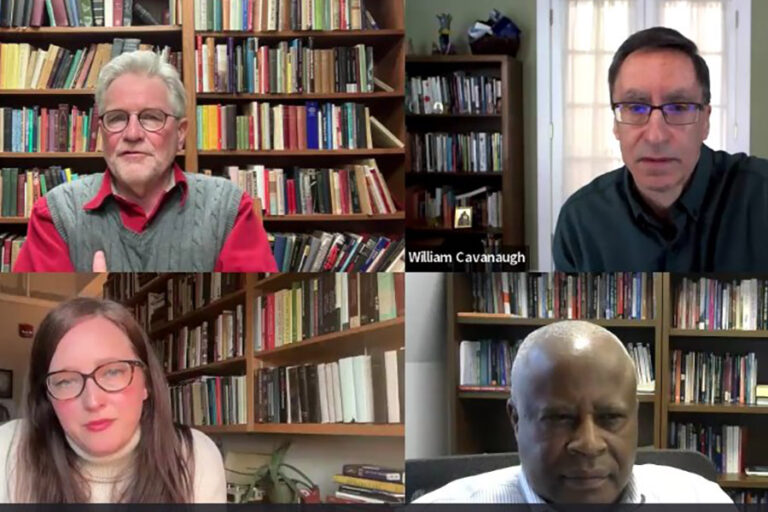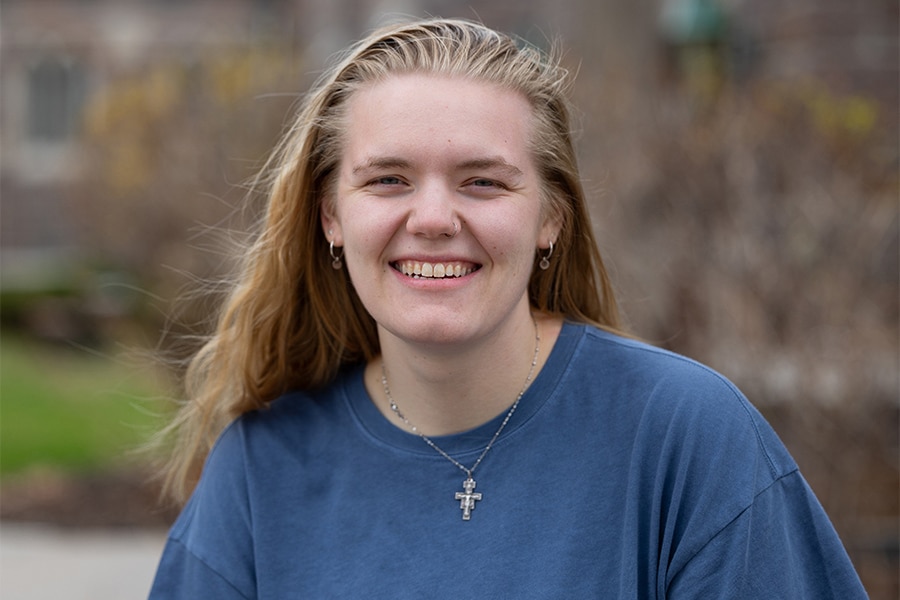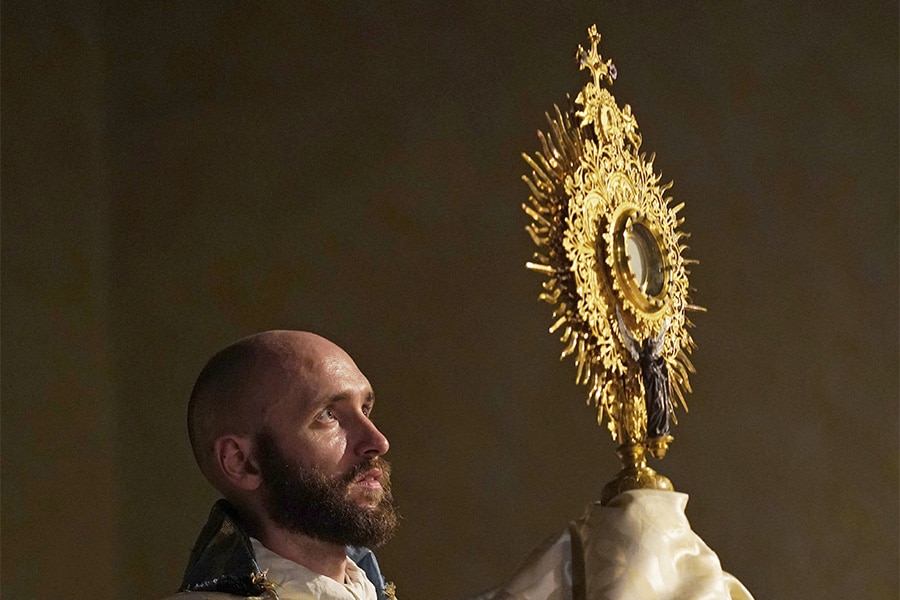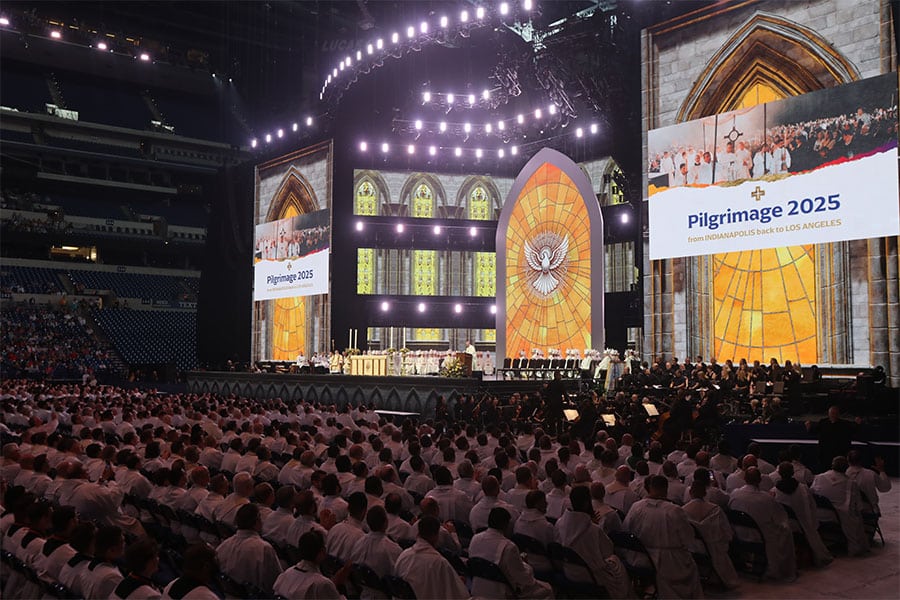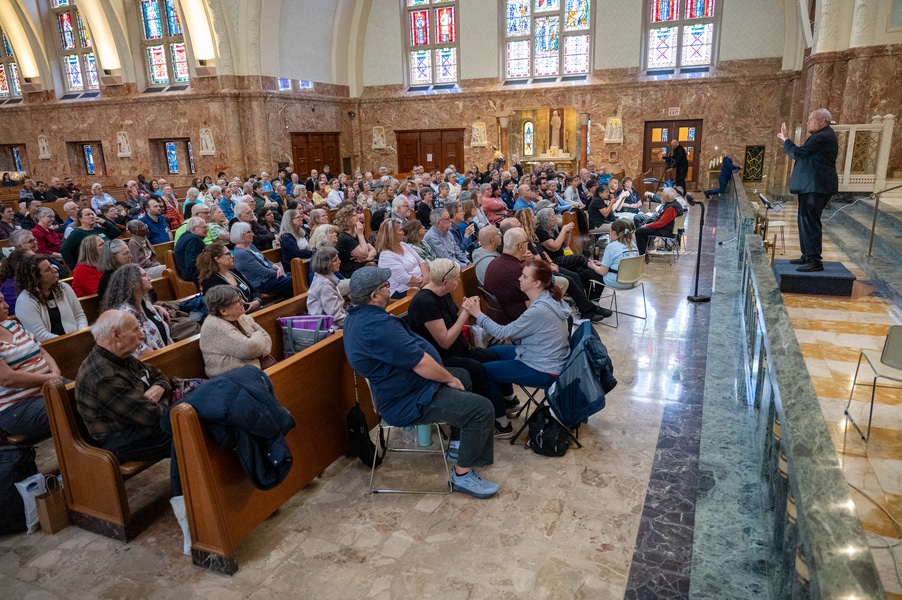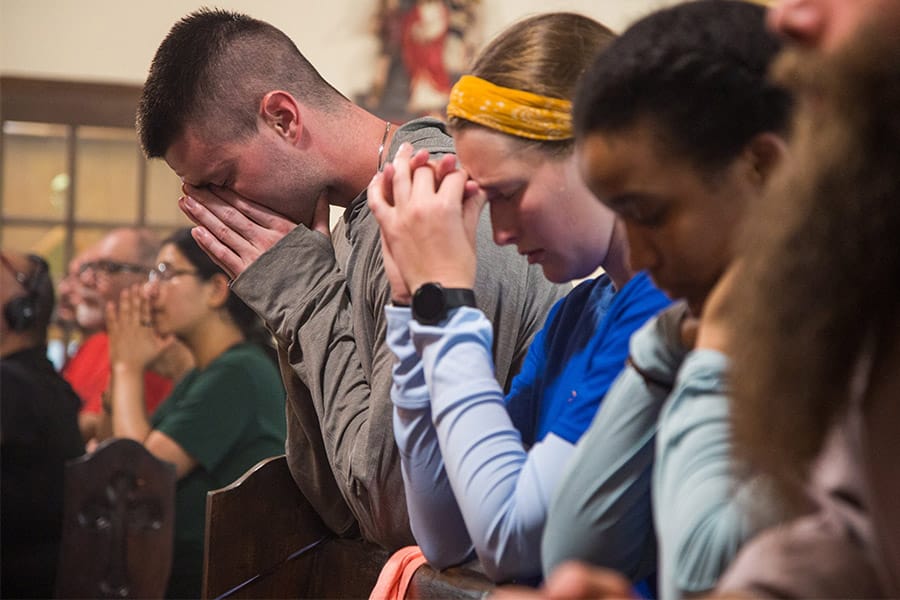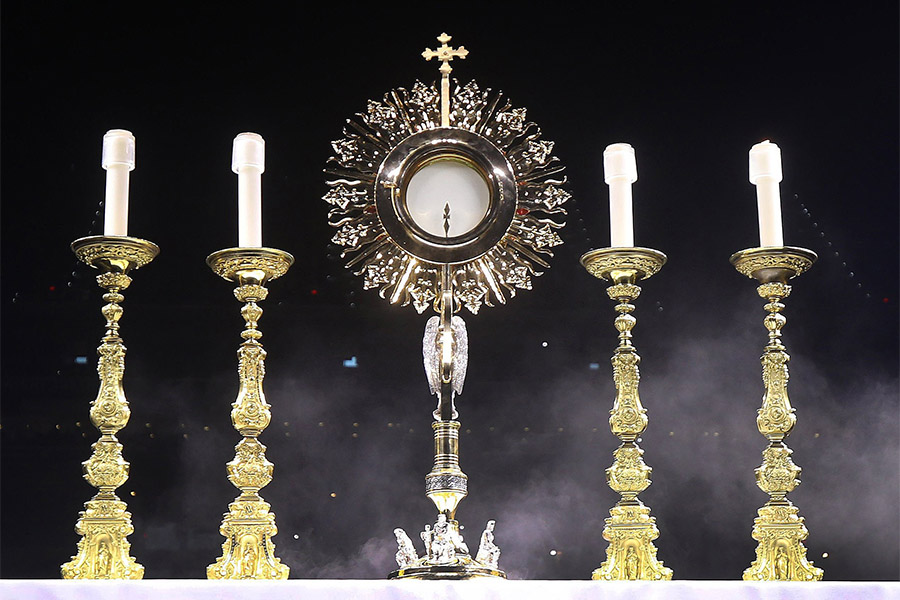Although the Catechism of the Catholic Church teaches that “the Eucharist commits us to the poor,” many still don’t make this connection between the sacrament that is the “source and summit of the Christian life” and Catholic social teaching.
As Michael Baxter said during a Feb. 13 webinar from the University of Notre Dame on the Eucharist, it’s as if the liturgy and social justice “were these two separate entities.”
But it’s all of a piece as Baxter and other experts said during a discussion hosted by Notre Dame’s McGrath Institute for Church Life in advance of the National Eucharistic Congress in Indianapolis this summer. The congress is the main celebratory event of the three-year National Eucharistic Revival launched by the U.S. Catholic bishops in June 2022.
Baxter, who has a long academic career and is a visiting associate professor at the institute, characterized the Eucharist as a command to be involved in one’s community and the world.
“The last place you want to be after an hour of devotion to the Eucharist is by yourself,” he said.
“The very character of God is self-giving and self-abandonment,” observed Jennifer Newsome Martin, a Catholic systematic theologian, author and incoming director of Notre Dame’s de Nicola Center for Ethics and Culture. “The Eucharist is God in his form of giving-ness,” she said, and “this gift obliges us to return with more gifts.”
William T. Kavanaugh, professor of Catholic studies and director of the Center for World Catholicism and Intercultural Theology at DePaul University in Chicago, pointed to another foundational text, “The Confessions of St. Augustine,” written in the fourth century.
In Chapter 10, St. Augustine wrote of hearing “a voice on high” reminding him, “I am the food of grown men, grow, and thou shalt feed upon Me; nor shalt thou convert Me, like the food of thy flesh into thee, but thou shalt be converted into Me.”
Additionally, he said, Chapter 12 of the First Letter of Paul to the Corinthians exhorts Christians to recognize that “when we suffer, we all suffer together. When we rejoice, we all rejoice together.”
The Eucharist should be seen, Kavanaugh said, as a way of breaking down literal boundaries to those in need.
This has been expressed, he said, in his own Chicago parish, which began a ministry to Nicaraguan refugees bused north by Texas Gov. Greg Abbott after being apprehended on the Southern border. The ministry has expanded to include “buildings we’ve not been using.”
Father Emmanuel Katongole, ordained by the Archdiocese of Kampala, Uganda, and a professor in Notre Dame’s Kroc Institute for International Peace Studies, said he found inspiration in Pope Francis’ encyclical “Laudato Si’.”
“This has drawn me deeper into appreciating the connectedness,” he said. “We need integrated ways to think about it.”
Baxter concluded that every time a Catholic is in a Communion line, “we’re all acknowledging that we’re God’s welfare recipients.”
Kavanaugh warned of thinking of the Eucharist as “an opiate for the masses.”
Parishioners work Monday through Friday at all kinds of “terrible corporations,” he said, then “on Sundays, we fool ourselves and come to receive the Eucharist in the way that has no effect on the world.”
Both Martin and Kavanaugh said the Eucharist should not be politicized, as has sometimes occurred in American politics, such as with respect to Catholic politicians whose positions on abortion are adversarial to church teaching.
“It should never be political,” Martin said. “Christ places himself in our hands.”
Kavanaugh recommended being “as welcoming as possible to the Eucharistic table. We’re not all approaching the table in the same way.”
Political weaponization of the sacrament, he said, “is a clear and present danger we need to avoid.”
Read More Eucharist
Copyright © 2024 OSV News

